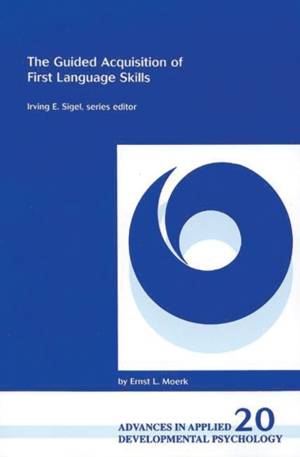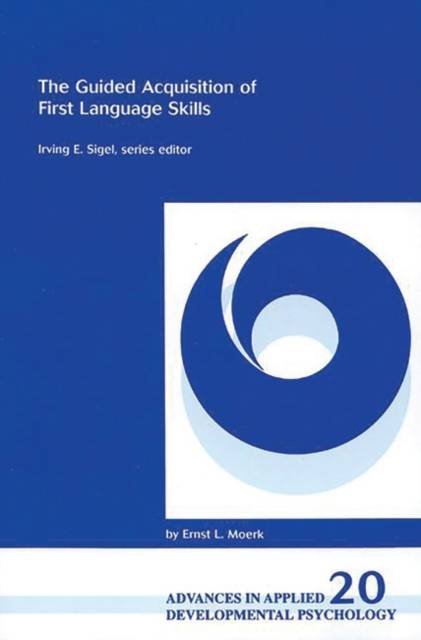
En raison d'une grêve chez bpost, votre commande pourrait être retardée. Vous avez besoin d’un livre rapidement ? Nos magasins vous accueillent à bras ouverts !
- Retrait gratuit dans votre magasin Club
- 7.000.000 titres dans notre catalogue
- Payer en toute sécurité
- Toujours un magasin près de chez vous
En raison de la grêve chez bpost, votre commande pourrait être retardée. Vous avez besoin d’un livre rapidement ? Nos magasins vous accueillent à bras ouverts !
- Retrait gratuit dans votre magasin Club
- 7.000.0000 titres dans notre catalogue
- Payer en toute sécurité
- Toujours un magasin près de chez vous
Description
This book presents overwhelming evidence of the positive impact of language training and filial language learning. By surveying and condensing the rich empirical findings that have been established over the last 35 years, Moerk specifies how relatively straightforward the training and learning interactions are. By surveying also the known relationship between less than optimal language training and delayed acquisition of even deficient end-products, the professional, whether in a clinical or educational setting, can also infer what interactional flaws to avoid.
An extensive list of references provides detailed support for the arguments presented; support that shows that many of the fashionable denials of the teachability or the learnability of language have been disproved empirically. Lastly, the tens of thousands of children with language delay or deficiency are, though not a direct audience of the book, intended as the main beneficiaries. As professionals focusing on remedies are lead back from airy speculations of innate knowledge--and therefore pessimistic inferences is this knowledge if not shown in behavior--and are shown how language skills can be transmitted. Their clients can gain not only language skills, but could reap educational and professional success.Spécifications
Parties prenantes
- Auteur(s) :
- Editeur:
Contenu
- Nombre de pages :
- 200
- Langue:
- Anglais
- Collection :
- Tome:
- n° 20
Caractéristiques
- EAN:
- 9781567504682
- Date de parution :
- 06-01-00
- Format:
- Livre relié
- Format numérique:
- Genaaid
- Dimensions :
- 158 mm x 236 mm
- Poids :
- 467 g

Les avis
Nous publions uniquement les avis qui respectent les conditions requises. Consultez nos conditions pour les avis.






